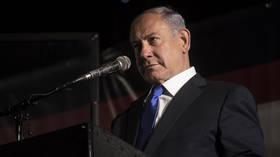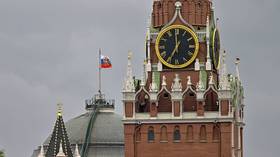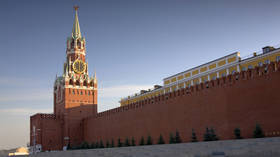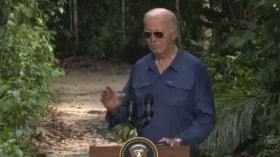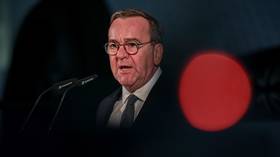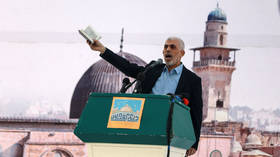Israel’s isolation: An anti-Semitic horror story or inevitable outcome?

Since the beginning of the war between Israel and Hamas last October, Bolivia and Colombia have severed their ties with the Jewish state. Chile, Jordan, and Brazil have recalled their ambassadors, whereas Türkiye has ceased its economic cooperation with Israel, in response to its brutality in Gaza.
Almost ten months have passed since Israel launched its war on Gaza following the deadly Hamas attack of October 7, which claimed the lives of more than 1,500 people and injured over 5,000 others.
In its struggle to dismantle Hamas and ensure it no longer poses a threat, Israel has left no stone unturned in its pursuit of militants. The problem is that in the process of doing so, it has also claimed the lives of innocent people. Although the numbers are disputed, Palestinian statistics show that more than 37,000 Palestinians – mainly women and children – have lost their lives. A recent poll revealed that more than 60% of Gazans have lost relatives in the conflict.
Images of the dead, wounded and starving, coupled with Gaza’s total devastation, have rocked the world. Mass protests denouncing Israel and calling for an end to its bloody war on Gaza have become a weekly reality; rallies and encampments on university campuses have turned into an ordinary phenomenon.
Growing isolation?
But the dissatisfaction with Israel’s policies doesn’t only stem from the masses. In recent months, the leaderships of various states have also joined the chorus of anti-Israel sentiment. Last November, one month into Israel’s Gaza offensive, Bolivia severed its relations with the Jewish state. Several months later, Colombia took a similar step; states such as Jordan, Chile, and Brazil have recalled their ambassadors, whereas President Recep Tayyip Erdogan of Türkiye announced that his country would cut off economic relations with Israel.
European states have also chimed in. Norway, Spain, Ireland, and Slovenia have already recognized Palestine in response to Israel’s ongoing onslaught; and more countries promise to do the same, sending a message to Israel that it will be isolated if it doesn’t cease its current policies towards the Palestinians. Criticism is also heard from states that are generally supportive of Israel, such as the UK, France, Germany, and the US, whose leaders have already indicated that their patience is wearing thin.
Looking at the diplomatic mess his country is currently in, Dr. Alon Liel, a former Israeli diplomat and an ex-director general of Israel’s Foreign Ministry, pins the blame not only on the ongoing war and the “weaker standing” of Israel on the international arena, but also on Israel’s continuous occupation of the West Bank.
According to reports, 2023 set an all-time record for West Bank settlement construction and illegal outposts recognition. In 2024, Israeli authorities have approved the construction of 3,400 new units in the disputed area; a record amount of West Bank land was declared as state-owned property.
Liel believes Israel’s standing might be at risk. “It all depends on the continuation,” he says. “If this criticism continues over the course of the next few months, the situation will get very serious. It could not only damage Israel’s image and its international standing but it could also upgrade Palestine’s international status, [something that the current government of Prime Minister Benjamin Netanyahu has strived to avoid – ed.].”
Israel stands strong?
But not everyone agrees. Rolene Marks, spokeswoman for South Africa Zionist Federation, claims it would be “a stretch to say that Israel is perceived negatively in the world.”
“We can’t make a sweeping statement that Israel is isolated,” she says. “The opposite is true. There is a phenomenal amount of support [towards Israel] and while many countries have been critical of the state, so far we haven’t seen any major breaks of international relations,” she added.
One of the reasons for this, she says, is the world’s understanding of “who Israel is dealing with,” referring to Hamas, designated as a terrorist organization by many international players. Another reason for this could be the realization that Israel is “a strong economic and technological powerhouse” – needed for their own success.
“If these countries care really cared about the Palestinians, they would have been more vocal when Palestinians were protesting against Hamas or when they were gassed in the Yarmouk camp in 2013,” Marks says.
“These countries’ comments and deeds are driven by their own political agendas. One of our allies, for example, is currently in the middle of an elections’ cycle. Others have massive Muslim communities, which they don’t want to frustrate. So public statements to the media is one thing, what’s happening behind closed doors – is another.”
Recent data released by Israel’s Bureau of Statistics shows that 2024 saw an annual increase of 4.8% in exports by medium-high technology industries. Imports of consumer goods increased by 13.9%.
Military cooperation between Israel and other states has also been given a boost. The Israeli Defense Ministry announced on Monday that its exports have doubled within five years, with over a third of all agreements signed in 2023, including for missiles, rockets, and air defense systems. In April, when Israel was attacked by hundreds of Iranian drones, a coalition of the US, UK, France, and Jordan came to its aid, allegedly backed a number of Gulf states. Earlier this week, Israel’s chief of staff, Herzi Halevi, traveled to Manama, where he discussed security cooperation with a number of generals, including from Bahrain, the UAE, Jordan, and Saudi Arabia.
The trouble is that very often generals and governments don’t represent the mood of the general public; and that public seems to have grown more hostile towards Israel since the beginning of the war.
According to a recent poll, 68% of respondents in Saudi Arabia said they rejected the notion of recognizing Israel. Similar views have been expressed in Morocco and Sudan, where the rejection stood at 78 and 81% respectively.
In Europe and the US, anti-Israel flames have also been high. In 2023, America registered a total of 7,532 Jewish hate crime incidents, as compared to 2022, when the official figure stood at less than 4,000. France has seen 1,676 anti-Semitic crimes, as opposed to 436 in 2022; in the UK, 4,103 incidents have been reported; in Germany, they stood at 3,614 – also a significant increase compared to previous years.
“Since October we have seen an insane rise in anti-Semitism. It has reached a boiling point and is now bubbling over,” says Marks. “It is time world leaders do something about it.”
For Liel, however, the solution is not in the hands of world leaders. The key, he says, is in the hands of Israeli politicians and their policies.
“All they need to do is to accept the UN Security Council plan [presupposing the return of the hostages and the cessation of hostilities – ed.], stop the expansion of settlements and [act] to prevent settlers’ attacks against the Palestinians,” he concluded.
